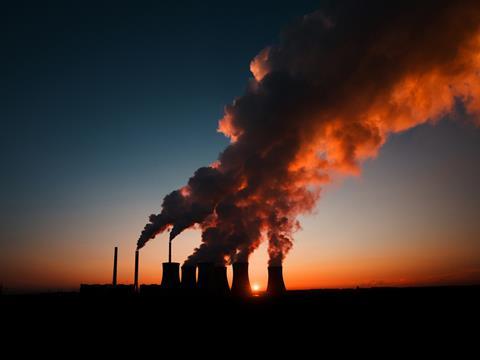
In an era defined by heightened environmental awareness and the urgency of carbon reduction, supply chains are undergoing a profound transformation. At the forefront of this revolution is the integration of smart packaging technologies, which is redefining the way organisations measure, manage and reduce their carbon footprint, according to Immy Mobley of Xtonnes, a company offering carbon accounting software providing data analytics to ‘decarbonise with confidence’.
As businesses strive to align with sustainability goals and regulatory mandates, the marriage of smart packaging and carbon accounting emerges as an effective solution for transparency in supply chain operations, she says.
For most businesses, carbon accounting in supply chains relies on static, retrospective data. Smart packaging, through embedded sensors and intelligent technologies, heralds a new era by providing an increased level of granularity.
Manufacturers and distributors can track the exact conditions under which goods are transported and stored. For example, tracked factors may include product storage temperatures or the precise distance a product has travelled.
This level of detail and dynamic data feed, coupled with carbon management technology solutions, empowers companies to capture deviations from optimal conditions and analyse their subsequent carbon implications. In turn, manufacturers can utilise this insight to target specific areas of a supply chain for carbon reduction.
Smart packaging equipped with GPS technology can continuously track a shipment’s mode of transport and distance travelled, both essential for calculating the emissions associated with logistics.
Connectivity technologies such as cellular, RFID, or IoT, can be embedded in to establish a real-time connection with transportation vehicles, providing data on speed and acceleration, and further insight into driving behaviours that influence emissions.
In addition, smart packaging can incorporate sensors that capture data on environmental factors, including temperature. This data is crucial for understanding the emissions associated with transportation conditions, for example the specific use of cooling refrigerants.
More granular supply chain emissions data has an obvious benefit to the planet, alongside significant cost savings from efficiencies. But, as part of the quest for a more sustainable future, regulations are increasingly coming into force that require organisations to disclose their carbon footprints.
So, the Corporate Sustainability Reporting Directive (CSRD) will require all large enterprises that carry out business in the EU, including those based outside of the EU, to disclose their carbon footprint starting in 2024.
The pairing of carbon accounting with smart packaging data has several other benefits too, adds Mobley. One is that the resulting data-driven insight often pushes sustainable innovation within the supply chain. For example, if smart packaging data shows that a substantial portion of emissions occurs on specific transportation routes, supply chain managers can try alternative routes, reduce transportation frequencies or implement energy-efficient technologies to mitigate carbon impact.
In addition, improved visibility into product lifecycles fosters the development of more eco-friendly packaging materials, streamlined logistics and optimised production processes – all of which can contribute to reduced carbon emissions.
Beyond the confines of the supply chain, the benefits resonate with customers too, she explains. By scanning a QR code or tapping an NFC-enabled tag, customers can gain access to information about a product’s journey and carbon footprint.
This article was created in collaboration with AIPIA (the Active and Intelligent Packaging Industry Association). For a full update on active and intelligent packaging, come along to the AIPIA World Congress (co-organized by Packaging Europe) in Amsterdam on 14-15 November. The only smart packaging event covering the entire technology spectrum, the World Congress is a meeting place for the global active and intelligent packaging industry where brand owners, innovators, and other stakeholders can network and see and discuss the latest trends and innovations. Register to attend here.














No comments yet